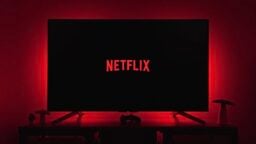Lucian Grainge‘s comment that ad-supported streaming platforms – like Spotify‘s cost-free tier – could not “sustain” the music business at his Code Media conference last month has been widely reported.
But now we have access to the full interview, and it turns out he went a little bit further than that.
The Universal boss raised his concerns over “ad-supported, on-demand” streaming platforms numerous times during his half-hour Q&A.
In fact, it was pretty much the theme of the entire pow-wow.
Grainge described his excitement over Apple‘s new music service, and the benefits of ‘windowing’ content – releasing new material exclusively on a paid-for partner before distributing to other services weeks later. UMG recently announced a deal with Vevo rival Vessel based on exactly this concept.
Read seven highlights from Grainge’s interview transcribed by MBW below – and watch the full video at the end of this article.
On… ad funded vs. free
The ad-funded part of the music ecosystem – that’s on-demand, ad-funded – as I’ve said before, is not something that is particularly sustainable in the long-term. Strategically it’s about making sure that we offer great new artists, great new product and how we work with as many different platforms to offer differentiation, different services, different fan opportunities within that.
“On-demand, ad-funded is not particularly sustainable in the long term.”
In some markets, in some regions, there will [always] be some form of on-demand, ad-funded offer. But it’s about how you capture those people and [move] them with great things into a recurring income stream which is obviously a premium subscription.
When we talk about the Spotify numbers… erm, [pause]… there’s a difference between streaming and subscription. Streaming is ad-funded on-demand, as far as I’m concerned. And subscription is recurring high-margin, predictive, value-full to the artists and the investors’ income.
On… windowing premium video content with Vessel
I think it’s great. The rationale? We create competition within the market.
It’s another example of what I care about, which is experimenting… for our artists, to create different ways to monetise their work and for us to capture the value in our investment. What we announced is a classic example of differentiation.
“If we’re going to transition [consumers] from ad-funded to premium, vessel is a great part of that journey.”
We don’t know how many [videos] we’ll do… but if we’re going to transition from ad-funded on-demand to premium subscription, it’s a great part of that journey.
I think it bodes well for all the other companies that are investing in content and content distribution; whether it’s Apple, Spotify, Deezer, Google or YouTube. I hope it’s successful.
On… trusting YouTube’s mission to launch a subscription tier
YouTube have launched a fairly substantial beta test [with Music Key] and they’ve said themselves that they are committed to a subscription model.
There are various ways in which they can move along that journey… as you can see from a lot of the other things that we’re doing, [to move consumers to subscription] there needs to be things that are [different] than just ad-free.
We take YouTube at their word that they’re interested in building a subscription business, that they’re interested in de-grading the free stuff.
“We take youtube at their word that they’re interested in building a subscription business.”
[How do you de-grade free stuff, Grainge is asked.] Make the offer better, give unique features, give the fan things they can’t get elsewhere: premium products, differentiated. That’s something we’re very committed to, and which our artists are very committed to.
Ad-funded isn’t a sustainable business for them… or for us. That’s why people get restless.
I see an enormous amount of data, we can see the trends and we can see how the zeitgeist is moving in content, IP and entertainment. [In] TV and film the concept of making [premium] things better and… [forming] a different relationship early is really what we see for the future as the key drivers of this growth.
On… Taylor Swift
She felt strongly that she didn’t want her album to be in the ad-funded on-demand [business]. We can’t just look at the transaction of the old model of the music industry anymore.
Take The Beatles. If you look at the actual consumption and the amount of times those songs have been played, effectively by the consumers’ own demand in their home or playback on whatever mobile device they’ve got… we as an industry can’t just look at that as a one-off payment.
Those payments have gone; they’re now recurring, repetitive, monthly, daily. The whole outlook on how we see monetisation of music has to be seen through a completely different lens as we transition to a different digital music business.
On… Apple’s new service
Apple have been a fantastic partner to all of the content industries. They’ve done phenomenally well with music, they ended up with an enormous share of the pie, and they did phenomenally well with everything else that they were able to do around [music].
There’s always been an emotion in Apple around music and content. You always felt they had an emotional intelligence around talent.
“I think apple care about music. There’s always been an Emotion there.”
Obviously Jimmy’s come in, who we know extremely well and I’m positive. I don’t know what they’re going to do – and even if I did I couldn’t talk about it now – but I feel very positive about it.
I think they care about it and they understand that everybody now needs to differentiate.
[Later in the interview he is asked about refining windowed releases with partners like Apple.]
It will be about how we are working with the talent to create different offers with different platforms in order for [consumers] to get it over a period of time.
You’re seeing this in TV and film: there are some TV shows I watch that are available on multiple platforms, and sometimes they’re available some place else for a period of time. It seems to work.
On… moving consumers from free tiers to paying a subscription
We spend a lot of our time thinking about how we do that. We want to accelerate paid subscription, recurring income – we want to increase the compensation pool for everyone in the whole industry; for writers, for musicians, for investors, performers – everyone.
This is a return to growth, a return to health, and ad-funded on demand is not going to sustain the entire ecosystem of the creators as well as the investors.
“We want to accelerate paid subscription, recurring income, for everyone in the industry.”
What we’ve done in this ‘second phase’ [of Grainge’s tenure as CEO], is to bring in so much competition, to encourage so many different models and start-ups…
It’s a bit like when we were kids we’d go into the forest and try to make a fire with dried leaves. And now, we’re smoking. Now, I hope we have with these aligned partnerships, the opportunity to turn them into something that is raging.
On… the benefit to labels of windowing in the first place
We sell more. [Smiles].
Music Business Worldwide




